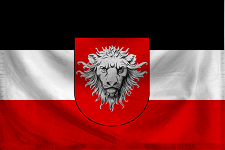

![]() by Freistaat-Ostafrika » Wed Sep 07, 2022 12:38 pm
by Freistaat-Ostafrika » Wed Sep 07, 2022 12:38 pm

![]() by Freistaat-Ostafrika » Fri Feb 24, 2023 1:23 pm
by Freistaat-Ostafrika » Fri Feb 24, 2023 1:23 pm

![]() by -The United Federation of Nations- » Sun Feb 26, 2023 4:05 am
by -The United Federation of Nations- » Sun Feb 26, 2023 4:05 am

![]() by Freistaat-Ostafrika » Wed Mar 01, 2023 4:00 pm
by Freistaat-Ostafrika » Wed Mar 01, 2023 4:00 pm

![]() by Freistaat-Ostafrika » Mon Apr 03, 2023 3:59 pm
by Freistaat-Ostafrika » Mon Apr 03, 2023 3:59 pm

![]() by Freistaat-Ostafrika » Sat Apr 29, 2023 12:34 pm
by Freistaat-Ostafrika » Sat Apr 29, 2023 12:34 pm

![]() by Freistaat-Ostafrika » Sun May 14, 2023 11:43 am
by Freistaat-Ostafrika » Sun May 14, 2023 11:43 am

![]() by Freistaat-Ostafrika » Thu May 18, 2023 4:35 pm
by Freistaat-Ostafrika » Thu May 18, 2023 4:35 pm

![]() by Freistaat-Ostafrika » Mon May 22, 2023 1:52 pm
by Freistaat-Ostafrika » Mon May 22, 2023 1:52 pm

![]() by Freistaat-Ostafrika » Sun Jun 25, 2023 10:48 am
by Freistaat-Ostafrika » Sun Jun 25, 2023 10:48 am
Advertisement
Return to International Incidents
Users browsing this forum: European Federal Union, New Heldervinia, Russia and Collaborative States, Socalist Republic Of Mercenaries, Southeast Marajarbia
Advertisement